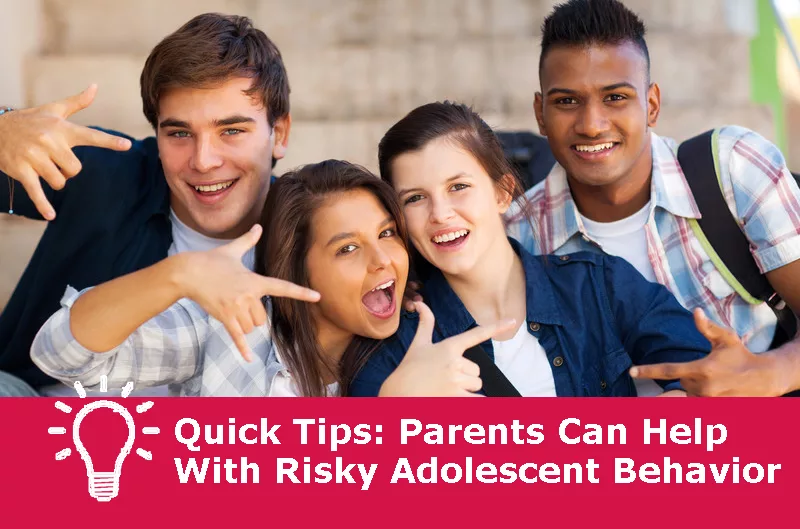Because of several factors, including high levels of dopamine, adolescents are prone to risky behavior. Controlling that risk and keeping kids safe isn’t something we as child psychiatrists can do on our own. It also takes support and help from parents, says Jess Shatkin, MD, an expert on adolescent behavior, who we interviewed for the most-recent issue of The Carlat Child Psychiatry Report.
Dr. Shatkin offers the following tips on having your parents help curtail risky teen behavior:
Recognize “red alerts.” A red alert means danger is imminent. An example of a red alert is leaving your 16-year-old daughter home alone with her boyfriend, which could risk the likelihood of her having sex. Other examples of red alerts include breaking curfews and excessive screen time. To head off risk, Dr. Shatkin charges us to work with parents to identify red alert situations and intervene.
Use the “fruit bowl.” When kids are socially excluded (especially on social media) they feel genuine pain. Make parents aware of the peer effects social media can have, and put limits on screen time. Dr. Shatkin jokes with parents that this is why God created the fruit bowl. He says parents should tell their teens that, during homework time and again at night, their phones go into the fruit bowl.
Leverage privileges. Tell parents that a good way to prompt a lot of good behavior is by using the positive things that kids want. For example, many teens love driving, and will do anything to earn and maintain that privilege. Tell parents to look for ways to connect meaningful rewards with required behavior (e.g., getting their homework and chores done, etc.)
Finally, don’t give up if you make mistakes. Dr. Shatkin says to tell parents that we’ve all made mistakes while raising our children. But there’s always another chance to get things back on track. Parents need to know that we can rehabilitate a kid. That’s what therapy and treatment are about. That’s what a lot of our parenting is about.
Subscribers can read our full interview with Dr. Shatkin, including his fascinating theory on how human evolution plays a role in adolescent risky behavior.
Dr. Shatkin offers the following tips on having your parents help curtail risky teen behavior:
Recognize “red alerts.” A red alert means danger is imminent. An example of a red alert is leaving your 16-year-old daughter home alone with her boyfriend, which could risk the likelihood of her having sex. Other examples of red alerts include breaking curfews and excessive screen time. To head off risk, Dr. Shatkin charges us to work with parents to identify red alert situations and intervene.
Use the “fruit bowl.” When kids are socially excluded (especially on social media) they feel genuine pain. Make parents aware of the peer effects social media can have, and put limits on screen time. Dr. Shatkin jokes with parents that this is why God created the fruit bowl. He says parents should tell their teens that, during homework time and again at night, their phones go into the fruit bowl.
Leverage privileges. Tell parents that a good way to prompt a lot of good behavior is by using the positive things that kids want. For example, many teens love driving, and will do anything to earn and maintain that privilege. Tell parents to look for ways to connect meaningful rewards with required behavior (e.g., getting their homework and chores done, etc.)
Finally, don’t give up if you make mistakes. Dr. Shatkin says to tell parents that we’ve all made mistakes while raising our children. But there’s always another chance to get things back on track. Parents need to know that we can rehabilitate a kid. That’s what therapy and treatment are about. That’s what a lot of our parenting is about.
Subscribers can read our full interview with Dr. Shatkin, including his fascinating theory on how human evolution plays a role in adolescent risky behavior.


_-The-Breakthrough-Antipsychotic-That-Could-Change-Everything.webp?t=1729528747)



